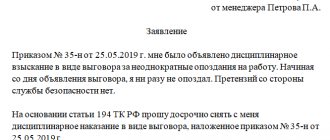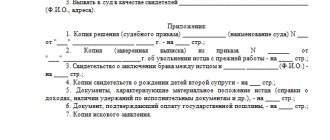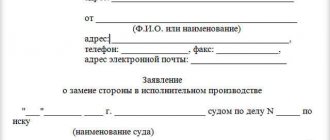If an employee has violated labor discipline or failed to fulfill obligations under the contract, the employer has the right to impose a disciplinary sanction. Namely: make a reprimand, reprimand or dismiss under clause 5 of part 1 of Art. 81 Labor Code of the Russian Federation.
After a reprimand or reprimand, the employer may deprive the employee of any additional payments and bonuses, if this is provided for by the collective agreement or other documents and acts.
How and in what cases can an employee appeal and remove a disciplinary sanction?
If you urgently need the help of a specialist to cancel a disciplinary sanction, call us or contact us via messenger.
In what cases can a disciplinary sanction be lifted?
To impose a disciplinary sanction, the employer is obliged to follow a certain procedure provided for in Art. 193 Labor Code of the Russian Federation. If not, the punishment can be appealed and cancelled.
What the employer must do:
- Demand an explanation. The employee must write an explanatory note within 2 days from the date of the request, or an act is drawn up stating that the employee refused to give an explanation.
- Conduct an internal investigation and draw up a report of violation of official duties.
- Issue an order stating that a specific penalty has been imposed on a specific employee.
- Familiarize the employee with the order against signature within 3 days from the day the order was issued.
Important! The employer himself decides what punishment to impose for which offense, depending on the severity and consequences of the violation. With the exception of dismissal, all grounds for which are specified in Article 81 of the Labor Code of the Russian Federation.
When an employee can get a disciplinary sanction reversed:
- If it's not his fault. For example, when an employer suffered losses due to a breakdown of equipment operated by an employee. Proving guilt falls on the employer.
- If he was not performing his duties , that is, work not provided for in his job description.
- The employer did not require a written explanation and/or did not draw up an act of refusal to provide an explanation.
- The employer violated the deadlines for applying penalties. An employee can be punished only within 1 month from the date of discovery and 6 months from the date of commission of the offense, but not later. If a violation is identified as a result of an audit, then no later than 2 years. Vacation and sick leave time is not taken into account.
- For one offense they were punished 2 or more times. For example, they gave me a reprimand and forfeited my bonus and immediately fired me.
When is it necessary to cancel a disciplinary order?
The need to cancel a disciplinary order arises in different situations. For example, the employer became aware of new circumstances of the offender’s misconduct, and they largely level out the degree of his guilt.
Or the punishment must be canceled after receiving a court decision, which provides evidence of the employer’s failure to fulfill the requirements of fairness and proportionality of the punishment (resolution of the plenum of the Supreme Court of the Russian Federation dated March 17, 2004 No. 2).
Whatever the reasons for canceling the previously issued document on punishment, a new order will have to be drawn up. Its form is also not established by law, so you can use any suitable template - both internal and ready-made samples posted on our website:
Procedure for appealing and lifting disciplinary sanctions
An employee has several ways to protect his rights: appealing a disciplinary sanction to the Labor Dispute Commission (LCC), the prosecutor's office, the Labor Inspectorate and the district court.
The procedure for appealing a disciplinary sanction is arbitrary in the sense of which authorities to contact in what order. An employee can apply to all authorities at the same time, choose one or several.
Complaint to the CTS
An employee can contact the Trade Union to create a labor dispute commission (LCC) and consider the dispute. The CTS can either act constantly or gather situationally. The commission includes representatives of the employee and the employer in a quantitative ratio of 1:1.
The CCC will consider the situation within 10 days, after which a meeting is held with the participation of the employee, and a decision is made by secret ballot.
Consideration is allowed without an employee if he writes a corresponding application (Part 3 of Article 387 of the Labor Code of the Russian Federation).
After 3 days from the date of the meeting, the CCC issues the employee a copy of the decision. If the employee does not agree with him, he can go to court or authorized bodies to appeal the disciplinary sanction.
You can go to court without going to the CCC.
Complaint to the prosecutor's office
A complaint to the prosecutor's office is appropriate in cases where there is reason to believe that the violations committed by the employer contain signs of a crime.
You can write a complaint through State Services or the Prosecutor’s Office website.
Complaint to the labor inspectorate
A complaint to the labor inspectorate can be effective. The department may send an order to the employer to cancel the disciplinary sanction.
You can file a complaint with the Labor Inspectorate without leaving your home through the website Onlineinspektsiya.rf.
How to file a claim to challenge a disciplinary sanction?
- Personally. You can sue yourself. The main thing is to find out by phone the reception time for filing claims. At the same time, you should not ask a relative to bring the package; only an employee or a representative with a power of attorney can personally deliver the documents.
- Postal direction. You can use the services of the Russian Post, as well as any offer from numerous courier services that can take the application to the court in a matter of hours.
- Internet. Yes, nowadays, in the era of high technology, you can scan your appeal, as well as the attachment to it, through the official website of the court.
The law office “Katsailidi and Partners” has more than once helped clients achieve justice and once again explain labor legislation to unscrupulous employers. We have gone through these processes more than once from the beginning (from the moment you contact us for legal assistance) to the end (execution of a court decision) and we know when and how best to present the necessary documents, statements, petitions, and maybe even attorney requests, in order to properly Confirm your position on the illegality of the disciplinary sanction against you in court and not delay the trial process.
Appealing a disciplinary sanction in court
To cancel a disciplinary sanction through the court, you can immediately file a claim without going anywhere first.
Labor disputes are heard by district courts. You need to go to the court of the locality where the employer’s company is located, where the employment contract is being executed, or where the employee himself lives.
The claim can be filed electronically on the website of a specific court, subject to technical capabilities.
It is important to draft the claim correctly, indicate the requirement with references to the law and attach sufficient evidence.
We will help you collect evidence, draw up a claim so that the dispute is resolved in your favor, and also return compensation that you were deprived of due to an unreasonable, illegal disciplinary sanction.
Results
To issue an order to lift a penalty, the employer’s desire is sufficient. The employee himself can contribute to this by expressing his request in writing, or other persons (direct manager or trade union representative) can do this for him.
In some cases, an order removing the punishment will not be required: if the employee has not committed any misconduct during the year (the punishment is then automatically removed) or the court will require the cancellation of the punishing document (if there are violations on the part of the employer when imposing the penalty).
You can find more complete information on the topic in ConsultantPlus. Free trial access to the system for 2 days.
Deadline for appealing a disciplinary sanction
Deadline for appealing a disciplinary sanction under the Labor Code:
- 3 months from the day the employee received a copy of the order of reprimand or reprimand
- 1 month from the day the employee received a copy of the dismissal order.
If you missed the deadline for appealing and lifting disciplinary sanctions for good reasons, there is a chance to restore them by contacting the CCC or in court. For example, if you were on a business trip, undergoing treatment, or were forced to care for a disabled relative. You will just need documentary evidence (certificates from the hospital, train tickets, plane tickets, etc.).
Evgeniy Deev
Case No. 2-1704/2014DECISION. In the name of the Russian Federation
September 16, 2014. Serpukhov, Moscow region
Serpukhov City Court of the Moscow Region, composed of presiding judge S.I. Kryuchkov.
with the participation of the plaintiff’s representative Deev E.V.,
representative of the defendant <***** S.V.>,
representative of a third party of the Education Department of the Administration of the Serpukhov Municipal District of the Moscow Region <***** E.V.>, with the secretary of the court session Brinyak E.N., having considered in open court a civil case on the claim of <****** T R.> to MDOU “Z***a” for the removal of disciplinary sanctions and compensation for moral damage,
U S T A N O V I L:
The plaintiff <***** T.R.> filed a lawsuit against the defendant MDOU "Z***a" to declare illegal the order <number> dated March 27, 2014, issued by the head of the MDOU "Z***a" "on imposing a disciplinary sanction on her in the form of a severe reprimand entered into her personal file, and collecting from the MDOU "Z***a" in her favor an amount of 30,000 rubles in compensation for moral damage.
She motivates her demands by the fact that she, <***** T.R.> has been working at the MDOU “Z***a” since <date> as a teacher-psychologist, and previously this preschool institution belonged to a military unit . By order <number> dated 03/27/2014, the plaintiff was subject to disciplinary action in the form of a severe reprimand for failure to comply with order <number> dated 02/04/2014 at the Zvyozdochka MDOU, expressing the requirement to eliminate violations in record keeping by 02/20/2014 year, on the basis of a certificate from B., a specialist from the Center for Psychological, Medical and Social Support of the Serpukhov District addressed to the head of the education department D. about the violations identified during the re-inspection on February 20, 2014.
The plaintiff considers the order <number> dated March 27, 2014 to apply a disciplinary sanction to her as illegal, since the employer did not require an explanation from her before applying a disciplinary sanction. As follows from the order <number> dated March 27, 2014, the reason for its issuance was a certificate dated February 20, 2014 from B., who is the director of the Municipal Educational Institution TsPMSS. That is, according to the defendant, the date of discovery of the offense committed by her is considered to be 02/20/2014. According to Part 3 of Article 193 of the Labor Code of the Russian Federation, disciplinary sanction is applied no later than one month from the date of discovery of the offense, and accordingly, the specified order was issued in violation of the deadlines established by the Labor Code of the Russian Federation. As stated in Part 5 of Article 192 of the Labor Code of the Russian Federation, when imposing a disciplinary sanction, the severity of the offense committed and the circumstances under which it was committed must be taken into account.
The plaintiff is a labor veteran, has significant teaching experience, has not had a single disciplinary sanction during her entire work, only commendations, has been repeatedly rewarded for conscientious work and high performance indicators, and has not violated the requirements of the job description. The plaintiff also believes that the director of the Municipal Educational Institution TsPMSS B. unlawfully drew up a certificate dated February 20, 2014. The plaintiff is not subordinate to this organization and is not its employee. According to clause 5.5 of the Charter of the Municipal State Educational Institution “Center for Psychological-Medical-Social Support”, approved by order <number> dated <date> by the head of the Education Department of the Serpukhov District Administration, the powers of the director of this institution do not include his right to check the activities of employees of other educational institutions. institutions. Due to the illegal actions of the employer, the plaintiff suffered moral damage, which was expressed in her experiences, due to which she developed insomnia and depression.
The plaintiff <***** T.R.> did not arrive at this court hearing, having been duly notified, submitting a statement supporting the claims and transferring powers to her representative E.V. Deev.
Earlier during the trial, the plaintiff <***** T.R.> supported the stated claims in full according to the arguments specified in the statement of claim, explaining that the disciplinary sanction was applied to her in connection with personal hostile relations on the part of the manager . She was indeed familiarized with the order <number> dated 02/04/2014, but she was not provided with a list of violations committed in the opinion of management, which had to be eliminated by February 20, 2014.
Representative of the plaintiff Deev E.V. during the court hearing, he fully supported the claims of his client, explaining that the contested order does not have a specific formulation of the disciplinary offense committed, in the opinion of the defendant, <***** T.R.> Claimed moral damage plaintiff <***** * T.R.> justifies that the actions of the defendant, expressed in disciplinary action, caused her moral suffering, since her reputation as a conscientious worker suffered.
The representative of the defendant MDOU "Z***a" <***** S.V.> at the court hearing objected to the satisfaction of the stated claims, citing the fact that in relation to the plaintiff <***** T.R.> a disciplinary sanction was imposed for her failure to comply with the order <number> dated 02/04/2014 to eliminate violations in record keeping by 02/20/2014. This violation was identified by a specialist from the Center for Psychological, Medical and Social Support of the Serpukhov District, B., who drew up a corresponding certificate addressed to the head of the education department, D., about the violations identified during a re-inspection on February 20, 2014. The corresponding list of documentation to be corrected was brought to the attention of the plaintiff. In addition, <***** T.R.> needed to resolve the issue of putting his office in proper order: arrange it with appropriate visual information, resolve the issue of replacing old furniture, and resolve the issue of purchasing modern educational toys. Thus, <*****> did not comply with the requirements stipulated by the methodological recommendations. Disciplinary action was taken against K. after her recovery. <******> refused to give an explanation for the violations.
A representative of a third party of the Education Department of the Administration of the Serpukhov Municipal District of the Moscow Region <****** E.V.> considered the claims to be unfounded, since <***** T.R.> was rightfully brought to disciplinary liability.
The case materials include the order <number> dated March 27, 2014 “On disciplinary action”, issued by the head of the MDOU “Z***a” <S.V. *****>, who for failure to comply with the order <number> dated 02/04/2014 according to MDOU “Z***a”, expressing the requirement to eliminate violations in maintaining documentation before 02/20/2014, on the basis of B.’s certificate, specialist of the Center for Psychological-Medical-Social Support of the Serpukhov District addressed to the head of the education department D. about the violations identified during a repeat inspection on 02/20/2014, the teacher-psychologist FULL NAME8 was given a severe reprimand, which was entered into the employee’s personal file and a deadline was set until 04/14/2014 for eliminate all identified violations. <***** T.R.> was familiarized with the order on March 27, 2014, and does not agree with the reprimand (case file 4).
According to the text of the order <number> dated February 4, 2014 “On eliminating violations”, a copy of which is presented in the case materials, the educational psychologist <***** T.R.> was obliged to eliminate all violations of documentation in accordance with the presented methodological recommendations of the regional center of psychology and defectology; There are also two entries with the following content: “I refused to sign the order” dated February 10, 2014 and “I have read the order” without a date (case file 53).
From the certificate of the Municipal Educational Institution “Center for Psychological-Medical-Social Support” B. it is seen that, based on the results of a repeated check of the working documents of the educational psychologist of the MDOU “Z***a” <***** T.R.>, the following was revealed: head and the long-term work plan has not been approved by the manager; there are no training programs (instead, methodological material is presented, partially taken from electronic sources, as well as course preparation materials); there is no passport for the office of a teacher-psychologist; the long-term calendar plan is drawn up without deadlines for classes and marks of completion; there is no general work plan for specialists for the year; there is no record of parents attending individual consultations and the date of their holding; the notes are not prepared properly (there is no structure, no date, goals, objectives and equipment are not indicated); the curriculum “Communication with preschoolers” has not been approved by a specialist at the methodological association of educational psychologists; all provided working documents (programs, plans, reports, etc.) are not properly prepared - not approved by the head of the educational institution, there are no personal signatures of the teacher-psychologist, the deadline for completion is not indicated, the structure of the program material is not specified, there is fragmentation and chaos in design, some of the documents look careless and unstructured; plans for individual support of children with disabilities have not been formalized (last entry dated 2011); outdated methodological literature is used (70-90); there is no file cabinet of educational, didactic and methodological material; there is no work plan for self-education; there is no aesthetics in the design of the office (a pile of old furniture, an overabundance of outdated toys); the color scheme used to decorate the office does not meet sanitary standards (dark tones, dull and worn-out colors); it is necessary to update visual information and purchase modern educational games and methodological literature. (case file 5).
Interrogated as a witness, B. confirmed the information set out in the above certificate, showing that this certificate was drawn up on the basis of the documents that were presented to her by the defendant’s administration and, in particular, <***** T.R>.
According to the text of the job description of the teacher-psychologist, the teacher-psychologist reports directly to the head of the preschool educational institution, deputy. head of the VMR and his job responsibilities include: carrying out professional activities aimed at preserving the mental, somatic and social well-being of pupils in the process of education and training in preschool educational institutions; promoting the protection of individual rights in accordance with the Workers' Rights Convention; promoting the harmonization of the social sphere of an educational institution and implementing preventive measures to prevent the occurrence of social maladjustment in students; identifying factors that hinder the development of students’ personality and taking measures to provide them with various types of psychological assistance (psychocorrectional, rehabilitation, advisory); providing advisory assistance to parents of students (persons replacing them), teaching staff in solving specific problems; conducting psychological diagnostics using modern educational technologies; carrying out diagnostic, psychocorrectional, rehabilitation, advisory work, relying on achievements in the field of pedagogical and psychological sciences, developmental psychology and hygiene, as well as modern information technologies; drawing up psychological and pedagogical conclusions based on research materials in order to orient the teaching staff, as well as parents (substitutes) in the problems of personal and social development of students; maintaining documentation in the prescribed form, using it for its intended purpose; participation in the planning and development of developmental and correctional programs of educational activities, taking into account the individual and age-gender characteristics of pupils, in ensuring the level of training of pupils that meets the federal state educational requirements; providing psychological support to creatively gifted students, promoting their development and organizing a developmental environment; determining the degree of developmental disorders (mental, physiological, emotional) in pupils, as well as various types of social development disorders and carrying out their psychological and pedagogical correction; participation in the formation of the psychological culture of pupils, teaching staff and parents (persons replacing them), including the culture of sex education; consulting employees of educational institutions on the practical application of psychology to solve pedagogical problems, increasing the socio-psychological competence of students, teaching staff, parents (persons replacing them); assessment of the effectiveness of the educational activities of teaching staff and teaching staff, taking into account the development of the personality of students; participation in the work of pedagogical, methodological councils, other forms of methodological work, in the preparation and conduct of parent meetings, recreational, educational and other events provided for by the educational program, in the organization and conduct of methodological and advisory assistance to parents (parents); ensuring the protection of life and health of students during the educational process; compliance with labor protection and fire safety regulations; development of measures to improve the psychological and pedagogical conditions of stay of pupils in preschool educational institutions; conducting: individual and group psychological diagnostics of various profiles and purposes in accordance with the work plan, the request of the administration and within the framework of the advisory process: monitoring the nature of the relationships of children in groups and, if necessary, adjusting them; individual work with children in the process of their adaptation to a child care institution; special developmental and correctional activities with students on cognitive, emotional and personal development, including in compensatory groups; trainings for teachers and parents (legal representatives); development and use of: correctional (tested and proprietary) programs and technologies; compliance with professional ethics, maintaining professional secrets, based on the principles of information confidentiality, not disseminating information obtained as a result of diagnostic, preventive, advisory work, if familiarization with it is not necessary to solve specific problems and may cause harm to the child and his environment; generalization and presentation of the experience of their teaching activities for colleagues of preschool educational institutions and other preschool institutions of the city; undergoing a medical examination during non-working hours according to the schedule; The educational psychologist is obliged to: inform the head, deputy head. according to VMR about absence from work due to illness and about starting work after illness or vacation; keep your workplace in perfect condition every day; An educational psychologist, if necessary, is involved in the administration of a preschool educational institution for pedagogical, methodological or organizational work within the established working hours. (case sheet 47-51).
Based on the results of the review-competition of offices of educational psychologists of the Serpukhov municipal district of the Education Department of the Administration of the Serpukhov municipal district dated May 17, 2013 <number> <****** T.R. awarded a diploma in the category “Traditions in the Profession” (case file 29).
According to the copies of certificates of incapacity submitted to the case materials, <***** T.R.> was on outpatient treatment from <date> to <date>, from <date> to <date> and from <date> by <date> (case sheets 30-34).
From an extract from the medical history of an inpatient patient, <*****T.R.> sees that she was in hospital treatment from <date> to <date> with a diagnosis of <data taken> (case file 35 ).
The case materials include the Charter of the Municipal Educational Institution "Center for Psychological, Medical and Social Support", the founder of which is the municipal formation "Serpukhov Municipal District" of the Moscow Region, the functions and powers of which on behalf of the municipal entity are exercised by the Administration of the Serpukhov Municipal District represented by the Education Department of the Serpukhov Administration municipal district (case sheet 36-45).
According to the act dated March 25, 2014, drawn up by the deputy head of administrative affairs G., deputy head of safety V., teacher S., at the appointed time until 12.00 o’clock. On March 25, 2014, the educational psychologist did not provide the head of the MDOU <***** S.N.> with an explanatory note on the certificate from specialist B. dated February 20, 2014 (case file 54).
Also included in the case file is an act dated February 21, 2014, stating that the educational psychologist <****** T.R.> was absent from the workplace <date> from 7.40 to 12.04 hours. (case file 55).
According to the employment contract <number> dated <date> and a copy of the work record book, <****** T.R.> was accepted into the MDOU “Z***ka” for the position of teacher-psychologist (case sheet 60 -66, 67-71).
According to an extract from the Unified State Register of Legal Entities, MDOU "Z***a" is an active legal entity registered on <date>, the head of which, on the basis of an order for employment <number> dated <date>, is <****** S.V.> (case sheet 76, 77-82).
Having heard the explanations of the plaintiff, his representative, the representative of the defendant, the testimony of a witness, and examined the written materials of the case, the court considers it possible to satisfy the claims in terms of lifting the disciplinary sanction and compensation for moral damage.
According to Article 382 of the Labor Code of the Russian Federation, bodies for considering individual labor disputes. Individual labor disputes are considered by labor dispute commissions and courts. Based on Article 392 of the Labor Code of the Russian Federation, an employee has the right to go to court for resolution of an individual labor dispute within three months from the day he learned or should have learned about a violation of his rights, and in disputes about dismissal - within one month from the date handing him a copy of the dismissal order or from the date of issue of the work book. The employer has the right to go to court in disputes regarding compensation by the employee for damage caused to the employer within one year from the date of discovery of the damage caused. If, for good reason, the deadlines established by parts one and two of this article are missed, they may be restored by the court.
In accordance with Article 192 of the Labor Code of the Russian Federation, for committing a disciplinary offense, that is, failure or improper performance by an employee through his fault of the labor duties assigned to him, the employer has the right to apply the following disciplinary sanctions: reprimand, reprimand, dismissal on appropriate grounds. The application of disciplinary sanctions not provided for by federal laws, charters and regulations on discipline is not permitted. When imposing a disciplinary sanction, the severity of the offense committed and the circumstances under which it was committed must be taken into account.
According to Article 193 of the Labor Code of the Russian Federation, before applying a disciplinary sanction, the employer must request a written explanation from the employee. If after two working days the employee does not provide the specified explanation, then a corresponding act is drawn up. Failure by an employee to provide an explanation is not an obstacle to applying disciplinary action. Disciplinary action is applied no later than one month from the date of discovery of the misconduct, not counting the time of illness of the employee, his stay on vacation, as well as the time required to take into account the opinion of the representative body of employees.
A disciplinary sanction cannot be applied later than six months from the date of commission of the offense, and based on the results of an audit, inspection of financial and economic activities or an audit - later than two years from the date of its commission. The specified time limits do not include the time of criminal proceedings. For each disciplinary offense, only one disciplinary sanction can be applied. The employer's order (instruction) to apply a disciplinary sanction is announced to the employee against signature within three working days from the date of its publication, not counting the time the employee is absent from work. If the employee refuses to familiarize himself with the specified order (instruction) against signature, then a corresponding act is drawn up. A disciplinary sanction can be appealed by an employee to state labor inspectorates or bodies for the consideration of individual disputes.
According to Art. 21 of the Labor Code of the Russian Federation, an employee, in accordance with the employment contract concluded with him, is obliged to conscientiously fulfill his labor duties and observe labor discipline.
As established during the trial, the plaintiff has been in an employment relationship with the defendant as an employee in the position of a teacher-psychologist since <date>, performing the labor duties stipulated by the contract, using methodological recommendations corresponding to her position. By order <number> of March 27, 2014 “On disciplinary action,” a disciplinary sanction was applied to the plaintiff in the form of “... a severe reprimand entered into a personal file” with the wording “For failure to comply with the order <number> of February 4, 2014 to MDOU "Z***a", expressing a requirement to eliminate violations in maintaining documentation until February 20, 2014, on the basis of a certificate from B., a specialist from the Center for Psychological, Medical and Social Support of the Serpukhov District addressed to the head of the education department D. about the identified violations in re-inspection on February 20, 2014.” By order <number> of February 4, 2014 “On Eliminating Violations,” the plaintiff was obliged to eliminate all violations in maintaining documentation by February 20, 2014 in accordance with the presented methodological recommendations of the regional center of psychology and defectology. The disciplinary sanction applied and the procedure preceding its application comply with current labor legislation.
However, both in the wording defining the disciplinary offense of employee <*****>, and in the documents presented by the defendant, in particular, the order <number> dated <date>, there is no information that allows us to judge the presence of specific violations committed it was K. who, in the performance of her job duties, needed to be eliminated, and she had the opportunity to independently eliminate them without the consent of the employer’s manager and the specified methodological center. The absence of the above information, the obligation to provide which, in accordance with the principle of the presumption of good faith of the employee, lies with the defendant, does not allow us to establish with absolute certainty the presence of a disciplinary offense in the actions of the plaintiff, in connection with which the court considers it possible to satisfy the claim for the removal of the disciplinary sanction.
In addition, when applying this type of disciplinary sanction in the form of a reprimand, the employer did not take into account the severity of the offense committed, in the opinion of the defendant, and the circumstances in which it was committed - any comments on the performance of labor duties and, in particular, on the performance of the necessary Before the case under consideration, <******> received no documentation from either the employer or the persons who were covered by the plaintiff’s pedagogical and psychological activities; on the contrary, the case materials contain documents confirming the professional attitude of <**** **> to their work responsibilities.
According to Art. 237 of the Labor Code of the Russian Federation, moral damage caused to an employee by unlawful actions or inaction of the employer is compensated to the employee in cash in amounts determined by agreement of the parties to the employment contract. In the event of a dispute, the fact of causing moral damage to the employee and the amount of compensation for it are determined by the court, regardless of the property damage subject to compensation. When determining the amount of compensation for damage, the requirements of reasonableness and fairness must be taken into account. The nature of moral suffering is assessed by the court taking into account the actual circumstances in which the moral harm was caused. Taking into account the circumstances of the case, the degree of moral suffering, as well as the financial situation of the defendant, which is a municipal educational institution, the court considers it reasonable and fair to recover from the defendant in favor of the plaintiff compensation for moral damage in the amount of 5,000 rubles.
Having examined the plaintiff’s arguments about the defendant missing the deadline for applying a disciplinary sanction and the defendant’s application of a disciplinary sanction not provided for by labor legislation, the court considers it possible to disagree with it. Indeed, in accordance with Article 193 of the Labor Code of the Russian Federation, disciplinary sanction is applied no later than one month from the date of discovery of the misconduct. However, as it was established during the trial, the deadline for execution of the order <number> was set from February 4 to February 20, 2014; On February 20, 2014, an inspection was carried out by specialist B.; from February 21 to March 14, 2014 inclusive <***** T.R>. was on outpatient treatment; In the period from March 15 to March 27, 2014, an inspection procedure was carried out in accordance with the above requirements of labor legislation, and on March 27, 2014, the contested order was issued. Thus, the beginning of the period established by Article 193 of the Labor Code of the Russian Federation must be calculated from March 15, 2014, that is, after the plaintiff completed outpatient treatment. The wording “a severe reprimand entered into a personal file” cannot be an independent basis for canceling the order to apply this disciplinary sanction, since the defendant formally and actually applied the disciplinary sanction provided for by the current labor legislation - “reprimand”.
By virtue of Art. 103 of the Code of Civil Procedure of the Russian Federation, the costs of the state duty are subject to recovery from the defendant.
Based on the above, on the basis of Articles 192, 193, 382, 392, 237 of the Labor Code of the Russian Federation, Article 103 of the Code of Civil Procedure of the Russian Federation and guided by Art. Art. 167, 194-199 Code of Civil Procedure of the Russian Federation
DECIDED:
Satisfy the claims.
Remove the disciplinary sanction in the form of a severe reprimand, applied by order of the head of the MDOU “Z***a” for <number> dated March 27, 2014 to the plaintiff <***** T.R.>.
To recover from the defendant MDOU "Z***a" in favor of the plaintiff K.T.R. 5,000 rubles as monetary compensation for moral damage.
To collect from the defendant MDOU "Z***a" a state duty in the amount of <data taken>.
The decision can be appealed to the Moscow Regional Court through the Serpukhov City Court of the Moscow Region within a month from the date the decision was made in final form.
Presiding Judge S.I. Kryuchkov
The reasoned decision was drawn up on October 2, 2014.
How to file a claim correctly
The statement of claim is made in writing and consists of the following parts:
- A cap:
- name of the court;
- Full name, address of the plaintiff;
- name and address of the defendant;
- amount of claim.
- Main part:
- history of relations with the employer: when the citizen started working, for what position, when, how and for what the citizen was punished;
- the essence of the employee’s objections: why he considers the employer’s actions illegal;
- if the employee believes that he has suffered psychological suffering, this should be pointed out.
- Final part:
- a list of the applicant’s demands, for example: cancel the order, reinstate him at work, recover the amount of moral damage;
- list of attached documents. The claim should be accompanied by copies of the employment contract, orders for employment, imposition of penalties, dismissal, job description of the applicant or other documents that will support the arguments of the claim;
- date and signature of the applicant.
In response to the employee’s statement of claim, the defendant has the right to file an objection to the court to cancel the disciplinary sanction. The task of the court is to evaluate the arguments of both sides and make an independent decision.
Sample statement of claim to cancel a reprimand
To Leninsky District Court
Ekaterinburg, Sverdlovsk region
Plaintiff: Ivanov Ivan Ivanovich,
st. Bardina, 1, apt. 2
Defendant: FSBI "ALLUR"
Statement of claim to cancel a disciplinary sanction
I, Ivanov Ivan Ivanovich, work at the Federal State Budgetary Institution "ALLUR" as a riding teacher under employment contract No. 123 dated June 22, 2012.
By Order No. 2 of October 1, 2021, a disciplinary sanction was illegally applied to me in the form of a reprimand for violating clause 20 of the Internal Labor Regulations of the Federal State Budgetary Institution "ALLUR", namely: for absence from the workplace during the entire working day on September 25, 2019.
I consider the order to apply a disciplinary sanction illegal for the following reasons:
- The employer neglected the procedure for imposing disciplinary sanctions established by Art. 193 of the Labor Code of the Russian Federation, namely: he did not require written explanations from me.
- My absence from work on September 25, 2019 had a good reason: on that day I donated blood as a donor, which is confirmed by a certificate issued by the donor service of the City Clinical Hospital No. 1 of Yekaterinburg. In accordance with Art. 186 of the Labor Code of the Russian Federation, on the day of donating blood, the donor is released from work, so I had no obligation to go to work on September 25, 2019.
In accordance with Article 237 of the Labor Code of the Russian Federation, the employer is obliged to compensate for moral damage caused by his unlawful actions.
- Cancel the order of the Federal State Budgetary Institution "ALLUR" to impose a disciplinary sanction on me in the form of a reprimand dated October 1, 2019 No. 2.
- A copy of the statement of claim.
- Employment contract.
- A copy of the employment order.
- A copy of the order imposing a disciplinary sanction.
- A copy of the certificate from the City Clinical Hospital No. 1 of Yekaterinburg dated September 25, 2019.
What should an employer do?
The employer may prevent an appeal against his decision. To do this, he must impose a disciplinary sanction only if there are real grounds for this. He must also comply with the procedure for issuing a penalty. You need to prepare all the necessary documents and fill out forms. All papers must be completed in accordance with the law.
What should I do if the employee is already filing an appeal? The employer needs to prepare documents to defend its position. It is necessary to prove that there was a violation. You also need to confirm full compliance with the penalty procedure. The manager needs to take into account that the courts side with the employees. Therefore, you need to carefully prepare the evidence base.
Question answer
Question: The employer issued a reprimand for improper performance of official duties on the day of going on sick leave. Can it be considered illegal?
Answer: Temporary incapacity for work (if there is a certificate of incapacity for work) is a valid reason for failure to perform official duties. While on sick leave (confirmed by a certificate of incapacity for work), a reprimand is unlawful. The employer must demand an explanation after returning to work, and then, if there are grounds, issue a reprimand. Otherwise it can be considered illegal.
Question: Is it possible to challenge a disciplinary sanction if more than three months have passed since the order was issued?
Answer: You can challenge the legality of a disciplinary sanction after the expiration of the period established by law only if there are good reasons (for example, a stay in a hospital). They should be indicated in the text and supporting documents should be attached. After studying them, a decision will be made on the possibility of reinstating the deadline and considering the complaint.
Question: The order to issue a reprimand states that the basis is non-compliance with instruction No..... But I did not see the instructions indicated, and my signature is also not on the familiarization sheet. Is it possible to challenge such a reprimand?
Answer: The instructions must be read when applying for a job. Holding people accountable for failure to comply with the requirements of a document with which the employee was not familiar is unacceptable. You have every right to appeal the reprimand.
Question: Can an employer have the right to impose two penalties for one violation: a reprimand and deprivation of bonuses?
Answer: An employer does not have the right to punish twice for one offense, but deprivation of a bonus does not apply to disciplinary punishment, but is its consequence. If the reprimand is applied justifiably and taking into account the procedure established by law, then there are no violations on the part of the employer.
When to complain
The basis for filing a complaint may be either the illegality of a disciplinary sanction or a violation of the procedure for its application (even when a violation actually occurred). We are talking about the following situations:
- No requirement for explanation. Before imposing a punishment, the employer is obliged to request from the employee a written explanation of the reasons for the offense in order to ensure that there is no good reason for its commission (for example, absenteeism may be due to illness). However, the employee is not obliged to provide it and the lack of a document will not be an obstacle to the application of punishment. But in this case, a refusal to provide explanations must be recorded.
- Failure to familiarize yourself with the manager’s order to bring to justice. The employee is given 3 days to familiarize himself with the document (excluding the period of absence from work) after its publication, and the fact of execution must be confirmed by a signature.
- Violation of deadlines for bringing to justice. A disciplinary sanction may be applied no later than 1 month from the date of discovery of the offense and no later than 6 months after it was committed. For misconduct identified during audits and accounting checks, the permissible period for bringing to responsibility is 2 years.
- Unreasonableness of disciplinary action. Punishment cannot follow for failure to perform work that is not related to job responsibilities, or for actions that do not contradict laws and regulations (for example, refusing to transfer to another job, when it is possible only with the consent of the employee). The employer is also obliged to take into account the severity and circumstances of the offense and choose only the types of disciplinary sanctions provided for by law.
- Repeated punishment for one offense. The employer does not have the right to apply several penalties for the same violation.
How and why they are punished
Before studying the procedure for appealing disciplinary sanctions and appealing disciplinary sanctions in court, you need to know the concept and basic principles of applying penalties to a negligent subordinate. A disciplinary offense means failure to comply with:
- their responsibilities;
- violation of labor regulations;
- not showing up for work on time;
- absence from work during the day;
- coming to work drunk;
- disclosure of secret information;
- theft, damage to property, etc.;
- violation of labor protection regulations;
- neglect of official discipline (for municipal and state employees);
- neglect of military discipline (for the military);
The employer must demand an explanatory note from the offender, in which he will set out an explanation of what happened (maybe the person had a good reason for not showing up for work on time). The absence of this paper on the part of the subordinate may become a reason to appeal the disciplinary sanction. To confirm the fact of a violation, a special commission may be created that will conduct an inspection and decide on the degree of guilt of the enterprise employee in the incident. An order is then issued to punish the culprit (if the subordinate is truly guilty). The interested person (the offender) must be familiarized with this order, since the period allotted for the possibility of appealing the order begins to run from the date of familiarization.
Expert opinion
The manager can cancel a previously made decision in connection with new circumstances that have emerged by issuing another order. Then there will be no need to challenge his decision. The period for which such a penalty is imposed is one year, after which it is canceled automatically.








